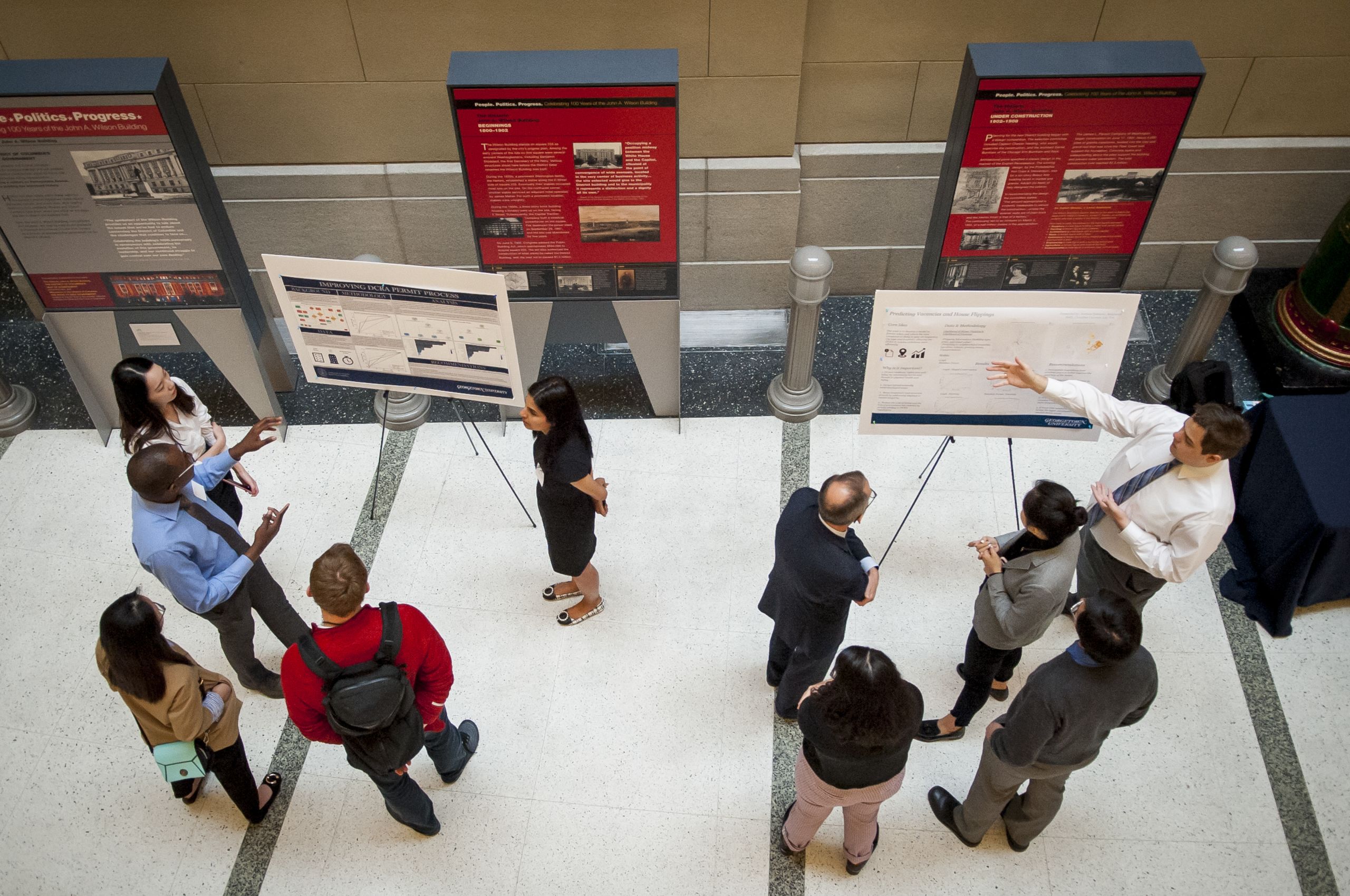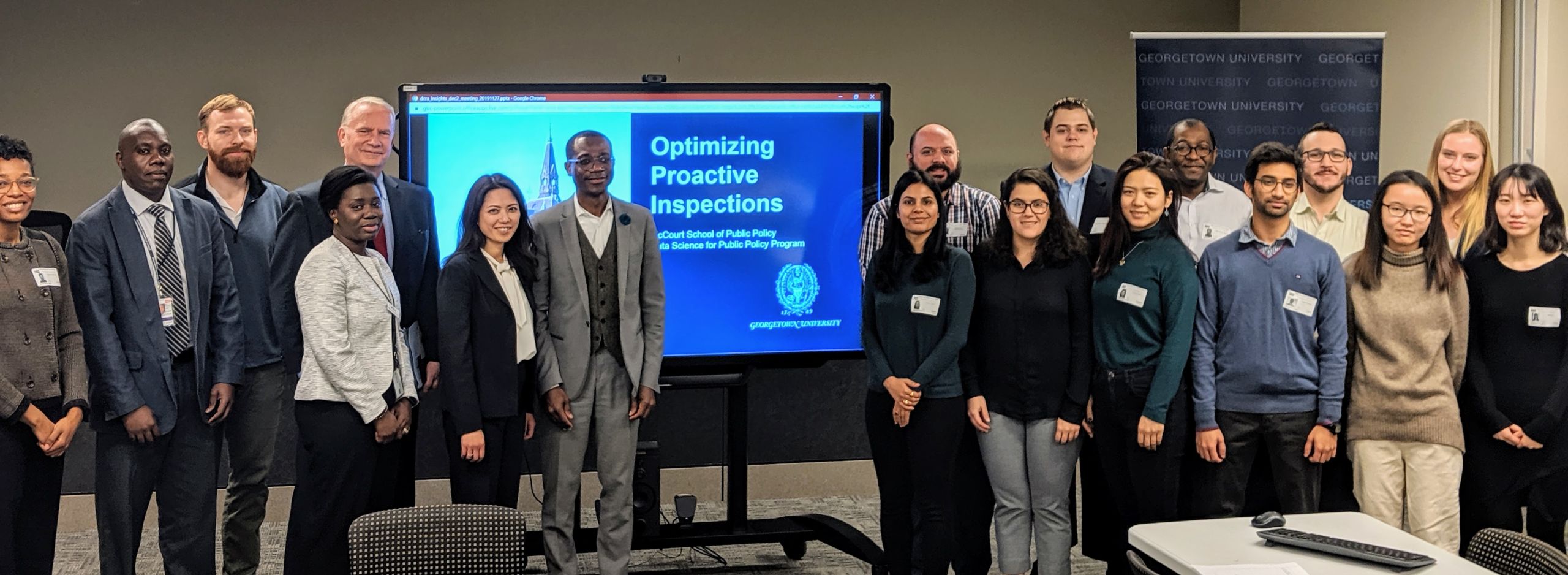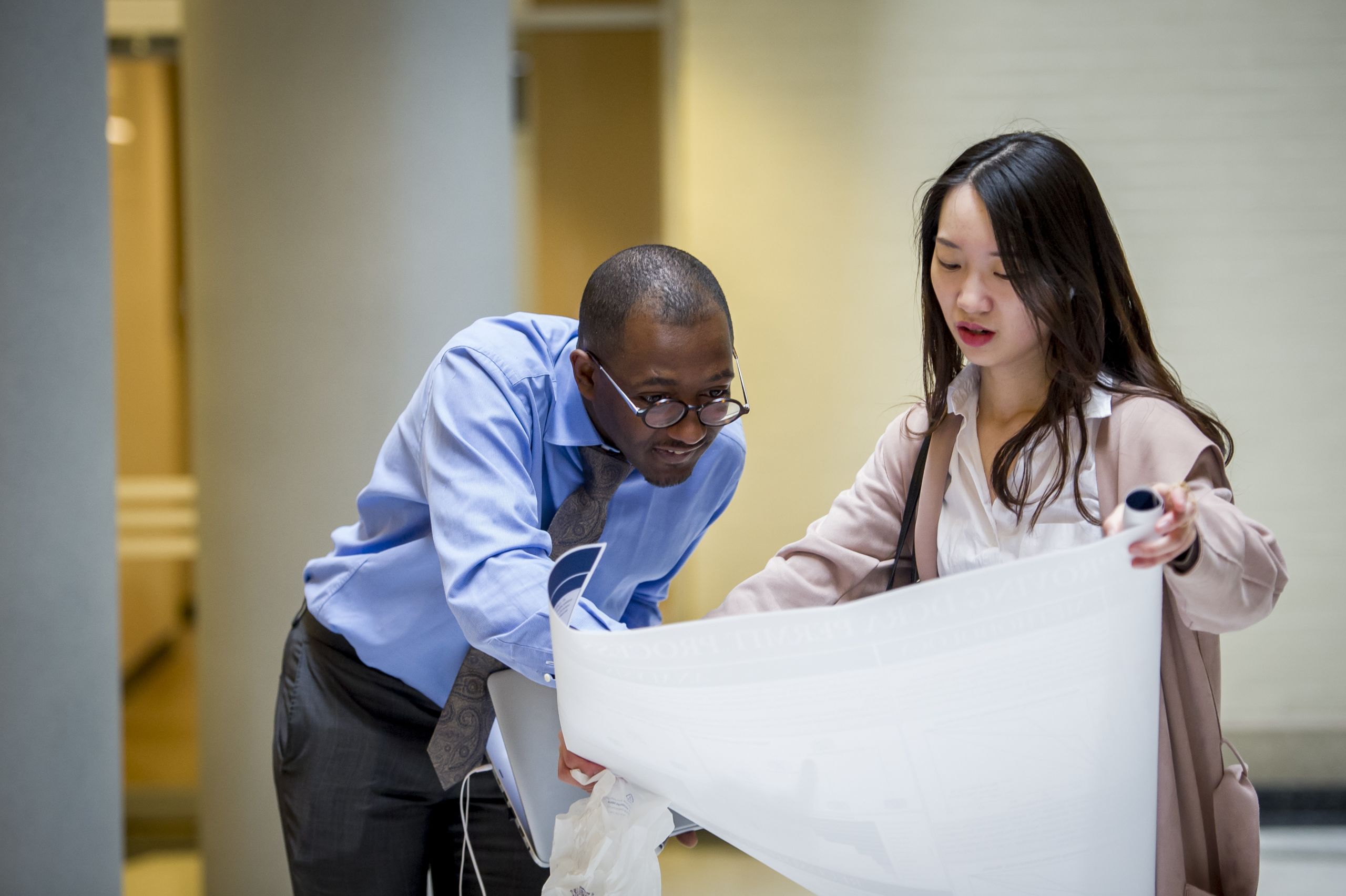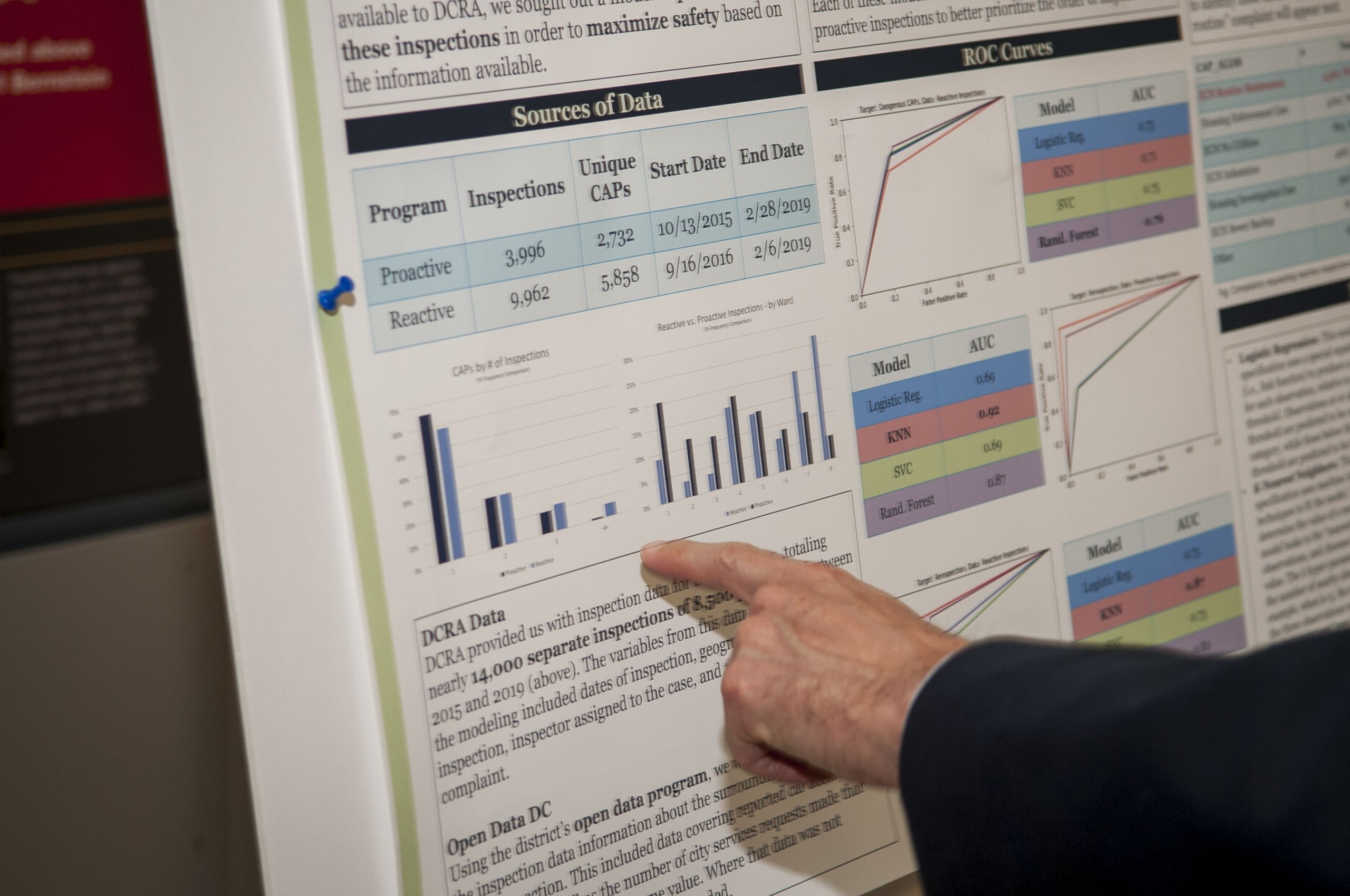WE CAN ENSURE SAFER ROOFS
OVER EVERYONE'S HEADS

McCourt is using data science to provide safer housing for DC's most vulnerable residents.
The challenge of keeping all DC renters safe is no easy task. The process is both complicated and continuous, in particular with many of the rental housing units in need of constant attention and others in jeopardy of falling through the cracks.
Now, thanks to a group of students from Georgetown University’s McCourt School of Public Policy, and their focus on applying data science to help solve real world problems, the District is implementing a new inspection process that puts analytics into action.
Finding Strength and Safety in Numbers
The project was the brainchild of McCourt Professor NaLette Brodnax and Department of Consumer and Regulatory Affairs' (DCRA) Director Ernest Chrappah, and designed to assist the department in how to better identify safety violations, and ultimately, save lives.
At their core, McCourt students are problem-solvers, so they rose to the challenge—specifically those in Brodnax’s machine learning course sequence, who specialize in combining public policy analysis with mathematical, statistical methods.
The students began their search to find a better solution by meeting with DCRA’s Office of Innovation and its deputy chief building officer to gain a better understanding of the available data and set realistic goals to help optimize the process and maximize resident safety. As an agency that oversees housing code compliance, among other regulatory enforcement, DCRA plays an important role in protecting the health and safety of DC residents.
Using DCRA’s existing data, the students identified trends and used them to build risk profiles, taking into consideration the history of prior violations, history of complaints based on keywords, renovation dates, license status, ownership type and more.
The students concluded that the DCRA could apply weighted probabilities to the housing units—essentially, using data research to determine which structures were more likely to pass and fail inspections—while designing new algorithms to steer the process.

McCourt School Assistant Professor NaLette Brodnax.
McCourt School Assistant Professor NaLette Brodnax.
“The impact that we are having is really enabling [DCRA] to leverage the information they have to be better at maintaining safe housing for District residents. This has an impact on potentially thousands of DC residents, many of whom are part of vulnerable populations.”

Students in McCourt’s Master of Science in Data Science for Public Policy (MS-DSPP) program hosted a poster session on their partnership with DCRA.
Students in McCourt’s Master of Science in Data Science for Public Policy (MS-DSPP) program hosted a poster session on their partnership with DCRA.
Extending Our Reach Beyond Campus Walls
There’s only so much impact that can be made from behind a laptop and spreadsheet. Data science is fundamentally about problem solving, and to solve problems we need to understand—and care about—the problems.
That’s why the McCourt School is committed to developing experiential learning opportunities for their students. In this case, Brodnax’s class worked with Georgetown University’s Office of Community Engagement to connect and collaborate with key partners at the DCRA—learning about their day-to-day challenges—while rolling up their sleeves and digging into the numbers that matter most.

Students presented their findings to DCRA Director Ernest Chrappah.
Students presented their findings to DCRA Director Ernest Chrappah.
“I’m really grateful for this hands-on learning opportunity,” said Madeline Pickens (G’20), one of the students that presented findings to DCRA. “Collaborating with DCRA allowed our class to experience all aspects of the data analysis process, including connecting with stakeholders, building and evaluating models, and considering implementation and ethical issues surrounding our results.”
Director Chapprah and his team are hoping to use the McCourt School students’ work to further optimize their system. Over the next few months, Brodnax will help DCRA implement the new algorithms designed by the students into the existing DCRA data software and infrastructure.

McCourt School Data Science for Public Policy students.
McCourt School Data Science for Public Policy students.
Evidence in Action
The partnership with McCourt and the DCRA did not start, nor does it end, with housing security. Ongoing and past student projects include identifying data to better predict vacancies and house flippings, improve the permit process and more. In addition to providing students hands-on experience in the data science field, the goal is to help make a positive impact in the DC community, in keeping with the university’s Jesuit tradition of “people for others.”
“Georgetown’s commitment to the common good starts right here in our hometown and we are thrilled to partner with DCRA on this project. It’s a true win-win when we can deploy our faculty and students to help DC government optimize services that will better protect DC residents. Renters in DC will be safer as a result of this project and we are proud to have played a part in it.”
The DCRA’s challenges are big and daunting—but they can and must be solved.
By connecting with those who share their passion, by combining data science with policy analysis, by finding the data to back it up, the McCourt School of Public Policy is turning evidence into impact.
This content was paid for and created by Georgetown University's McCourt School of Public Policy. The editorial staff of The Chronicle had no role in its preparation. Find out more about paid content.

A poster on “Prioritizing DCRA Rental Unit Inspections.”
A poster on “Prioritizing DCRA Rental Unit Inspections.”


